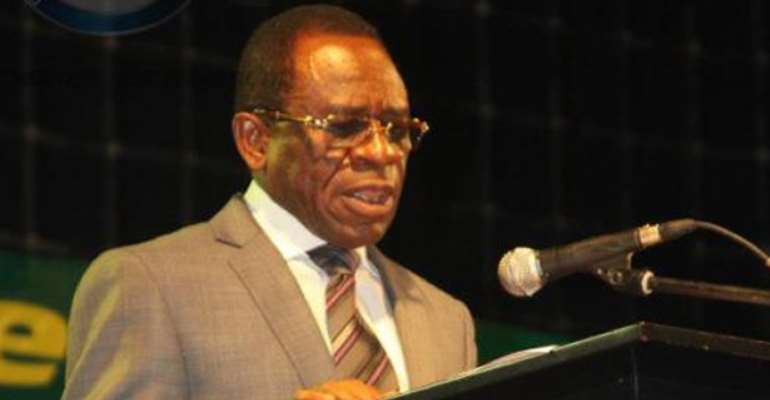Utuama Wants Electoral Process Overhauled

...As Olanipekun, Daudu, Odili, Others bag NIALS' Fellowship SAN FRANCISCO, December 10, (THEWILL) - Delta State Deputy Governor, Professor Amos Utuama (SAN), on Tuesday called for a total overhaul of the nation's electoral process. This, he said, becomes necessary to ensure that elections conducted through the process would be credible. Speaking at the 2013 Nigerian Institute of Advanced Legal Studies' (NIALS) Fellows Lecture, the Delta State deputy governor lamented that the nation's electoral process is being perceived as flawed and seen as one that is not transparency. He noted that it was because of the perceived flaw in the electoral process that the nation's democracy is being regarded as emerging because the process lacks integrity. Utuama however advised the Independent National Electoral Commission (INEC) and other stakeholders in the electoral process, including politicians to learn to play by the rules. At the occasion, two distinguished jurists and seven legal practitioners and scholars, including former presidents of the Nigerian Bar Association (NBA), Wole Olanipekun (SAN),and Joseph Daudu, (SAN) bagged the NIALS' Fellowship at the occasion. Delivering a lecture titled 'Maturing the Nigerian democracy,' Utuama, who was also honoured with a Fellowship last year, said the nation's electoral process lacks integrity because they were mostly conducted in disregard of the law. He described a credible electoral process as one where participants accept election result, electorate refuse to yield to corrupt practices and the court resolves electoral dispute fairly and in accordance with the law. According to Utuama: 'Prolonged litigation over election results sends wrong signal to the world, who wonder, are these people practicing democracy?' Citing the case of former American Presidential contenders, George Bush and Al-Gore, where, within seven days, the US' Supreme Court decided the dispute that resulted from the country's year 2000 presidential election, Utuama said: 'The lesson to be learnt from that case is that, as the Vice President of the US, Al-Gore was also the President of the Senate. 'And the Senate needed to ratify the result of the election in order for Bush to be sworn-in as the 43 President of US. 'If it were in Nigeria, Al-Gore will not sit over his political liquidation. But he did because there must be an end to electoral litigation. That is a lesson we can learn to restore integrity to our democracy.' According to Utuama, 'The culture of integrity is very relevant in transforming the nation's democracy from an emerging democracy to the greatest height of democratic governance. 'INEC must also uphold the rule of law and not of blatant illegality as the court held in the case of Omisore and INEC. 'Those in charge of elections must be honest to themselves and refrain from any form of manipulation and endless litigation. 'Institutions must also have the integrity to respect judgements of tribunals and court's. The electorate must have the required knowledge and enabling environment to exercise their voting right.' Professor Lanre Fagbohun, who read Olanipekun's citation at the occasion, described him as an accomplished legal practitioner, a scholar and philanthropist, who is not only a prolific writer, but had distinguished himself in the area of electoral dispute. He said Olanipekun is a quintessential legal luminary, who had impacted greatly on the growth of the legal profession in the country. Chief Justice of Nigeria (CJN), Justice Aloma Mukhtar, Attorney General of the Federation (AGF), Mohammed Adoke, and Justice Tanko Muhammad of the Supreme Court, all hailed NIALS' management for the institute's contribution to the development of law profession in the country. Adoke, in his remarks, expressed hope that those honoured by the institute would not relent in rendering intellectual services to the institute. The CJN, who hailed the school's Director General, Professor Epiphany Azinge (SAN), for the institute's satisfactory performance, urged the awardees to remain good ambassadors of NIALS. Azinge said the nine awardees were chosen because they have made meaningful contributions to the development of law and assist the institute in realising the dreams of its founding fathers. Justice Tanko Muhammad, who spoke on behalf of the other awardees, expressed delight over their choice for the awards. Other awardees included Justice Mary Odili (of the Supreme Court), Professor Akintunde Obilade, Charles Ilegbune (SAN), Awa Kalu (SAN), George Etomi (SAN), ex-NBA and Damein Dodo (SAN).
